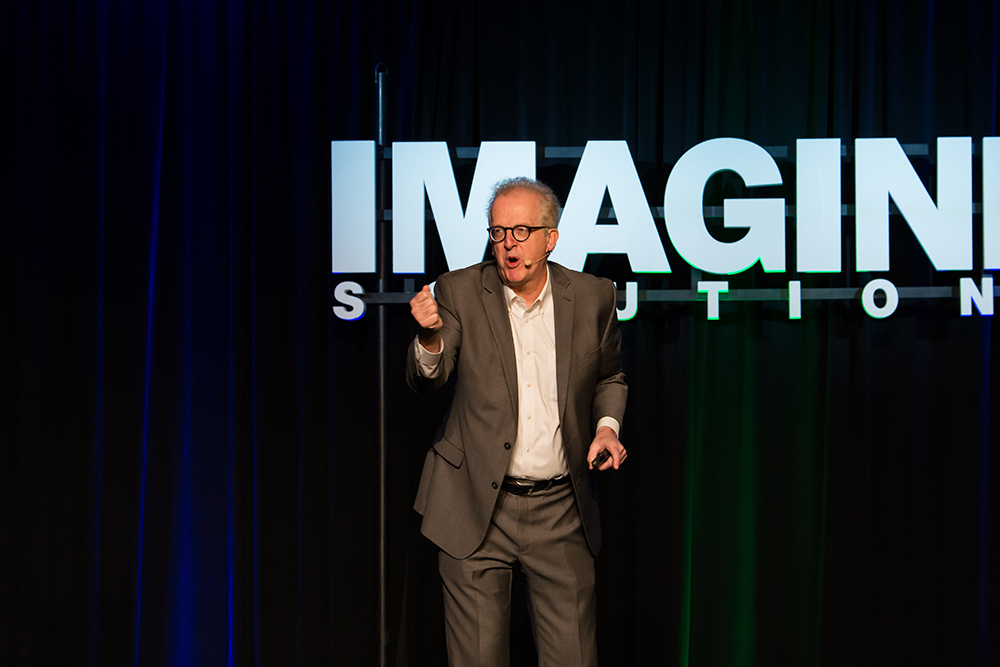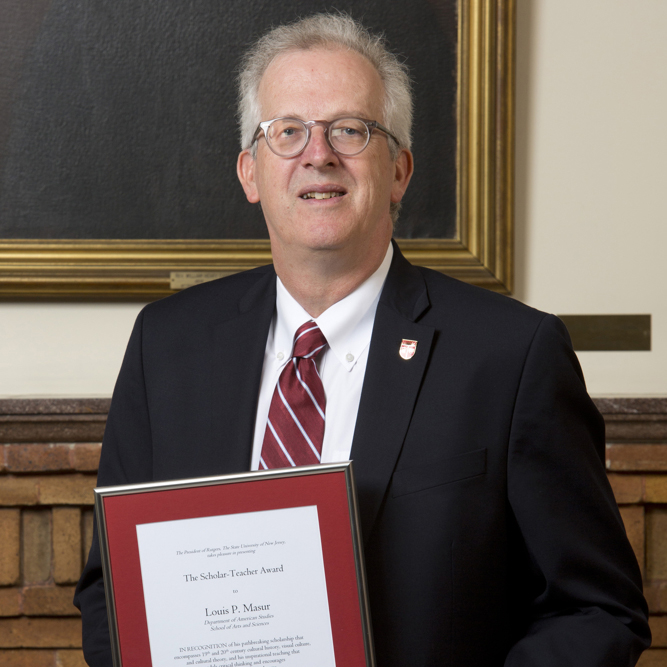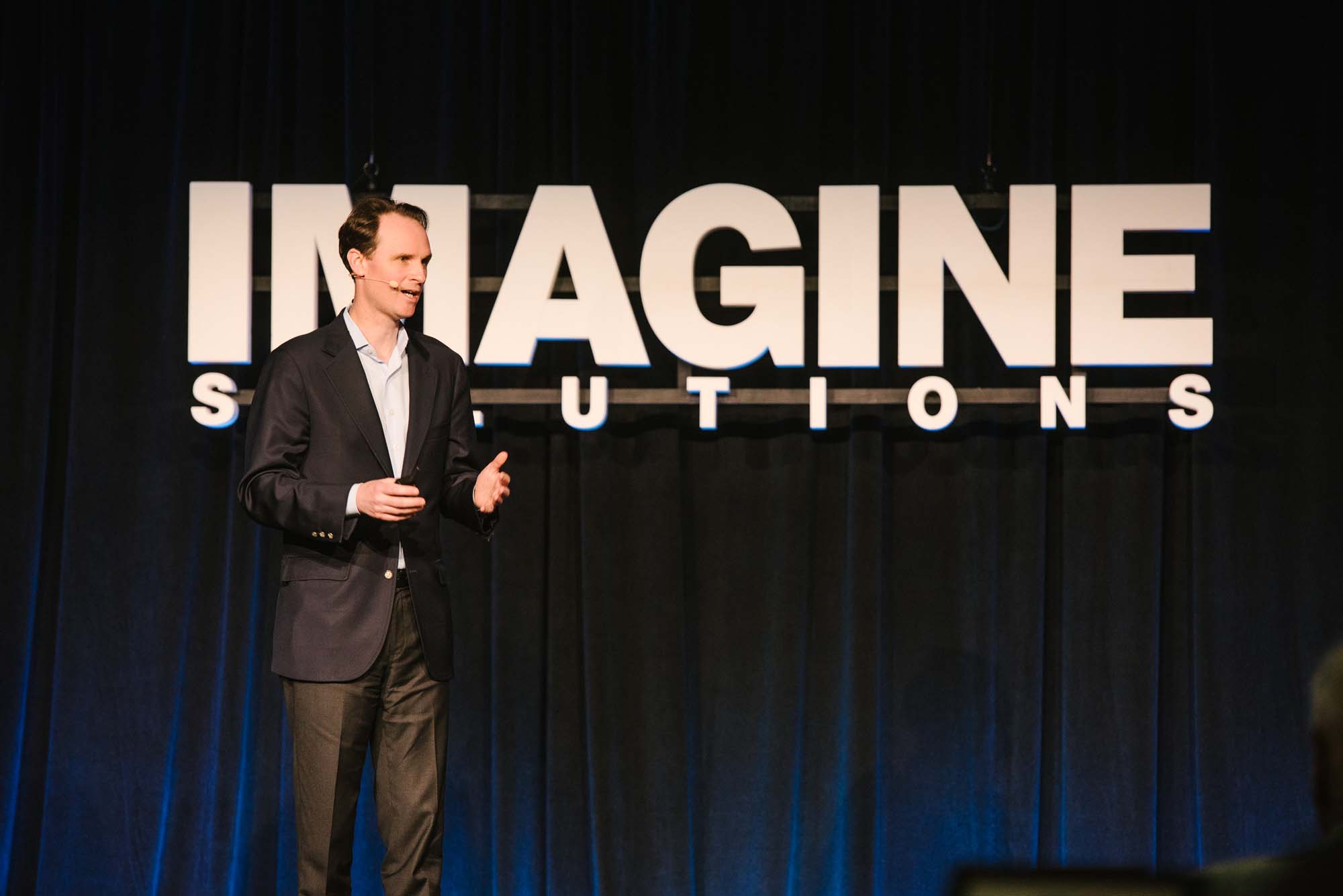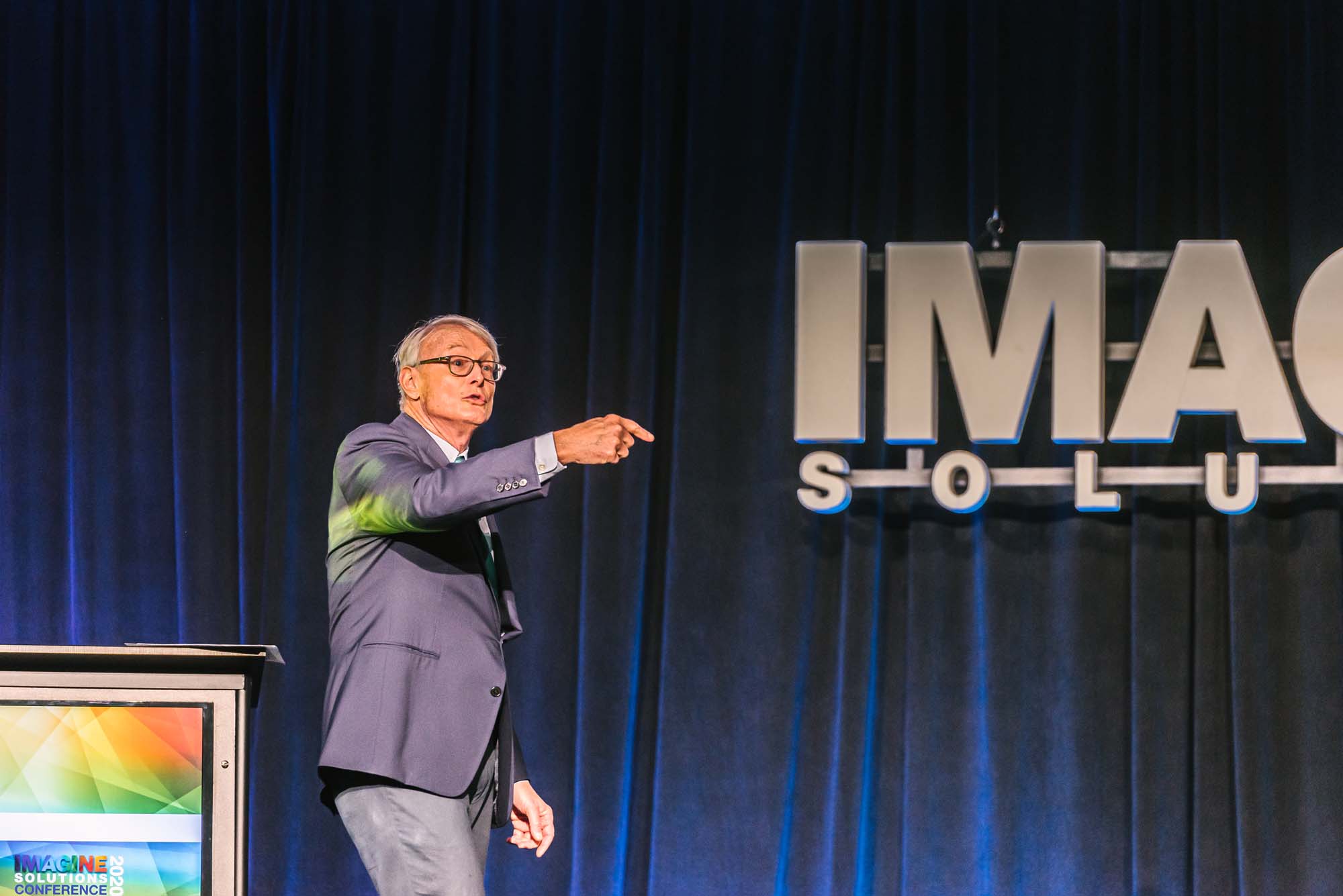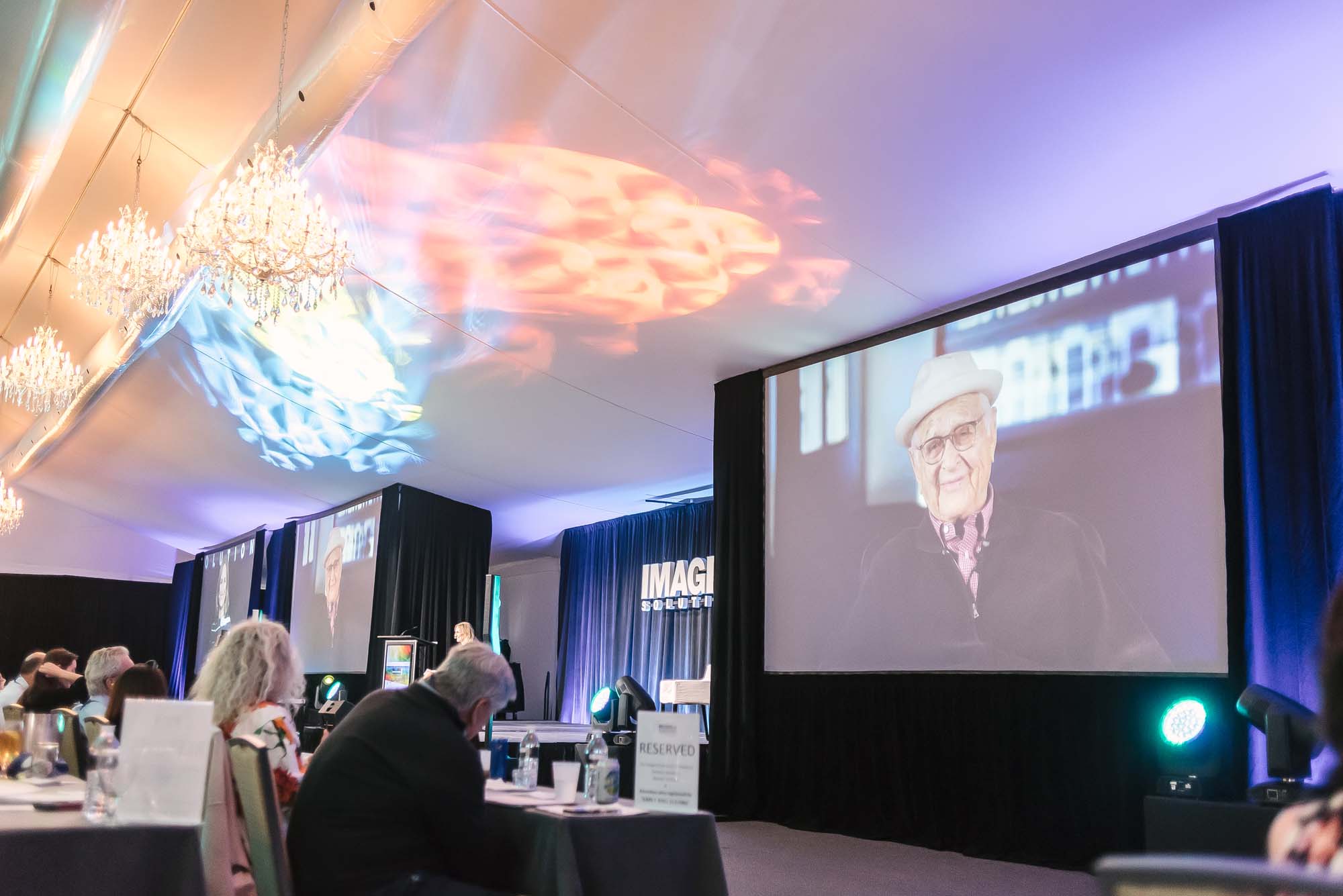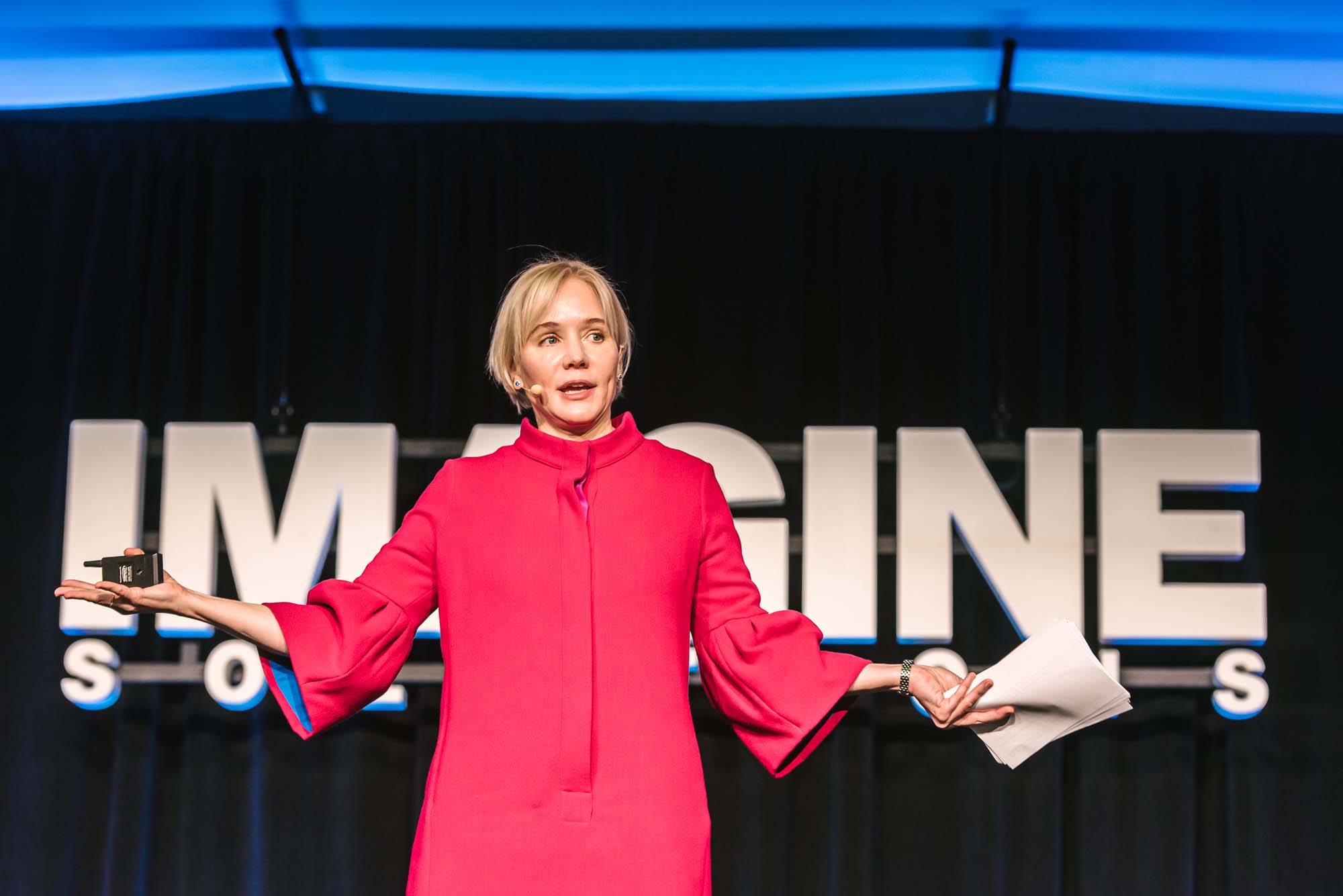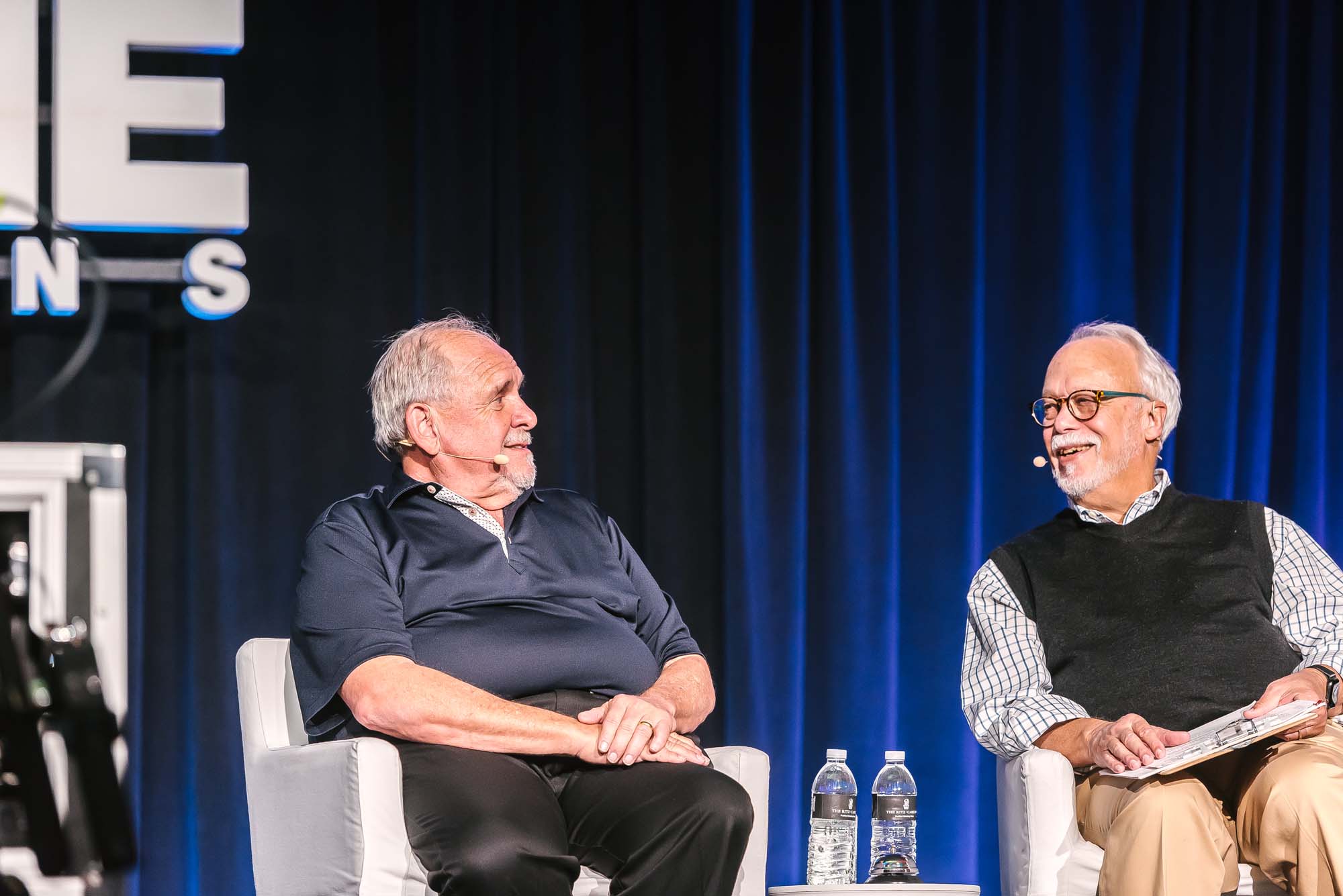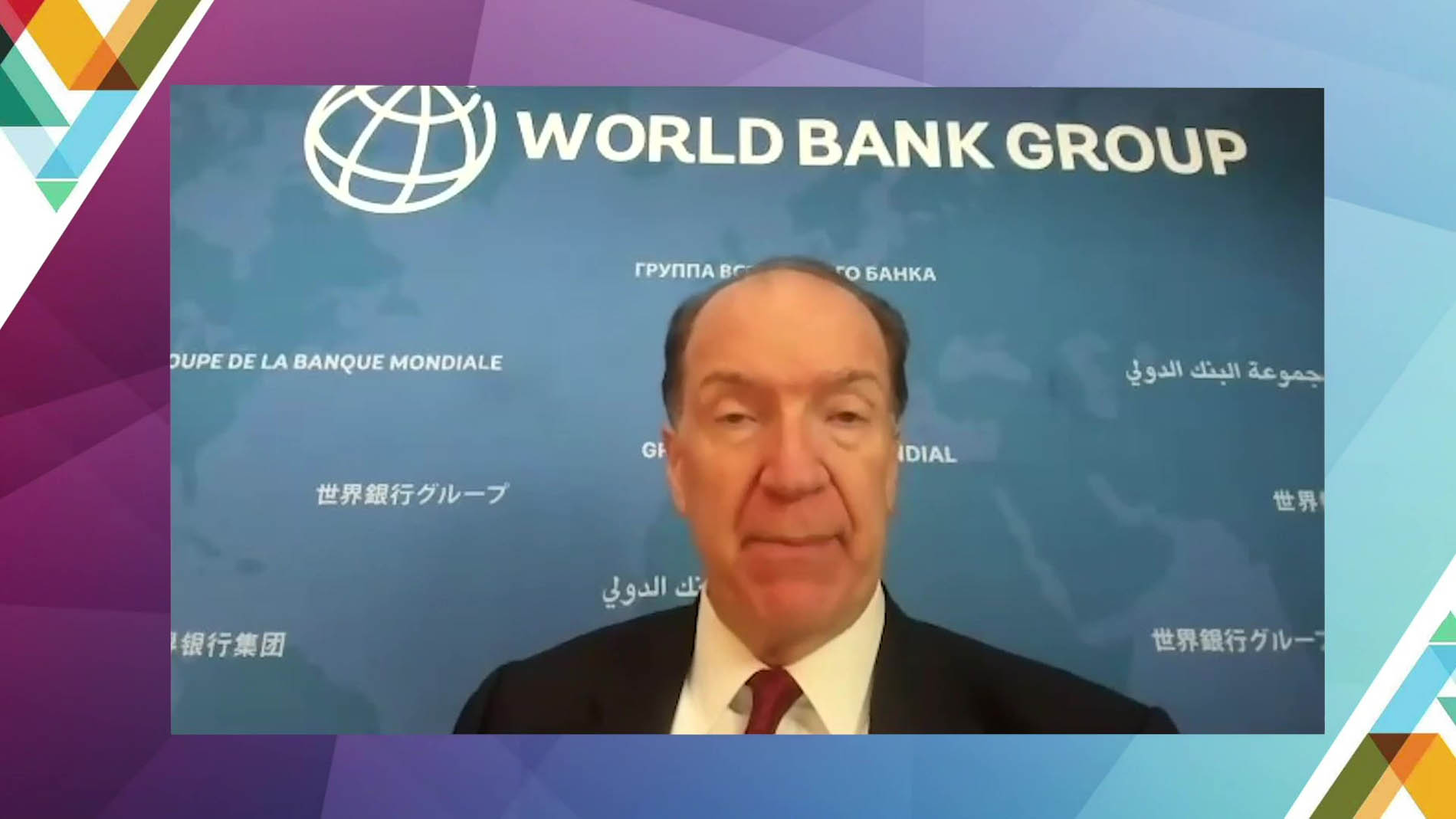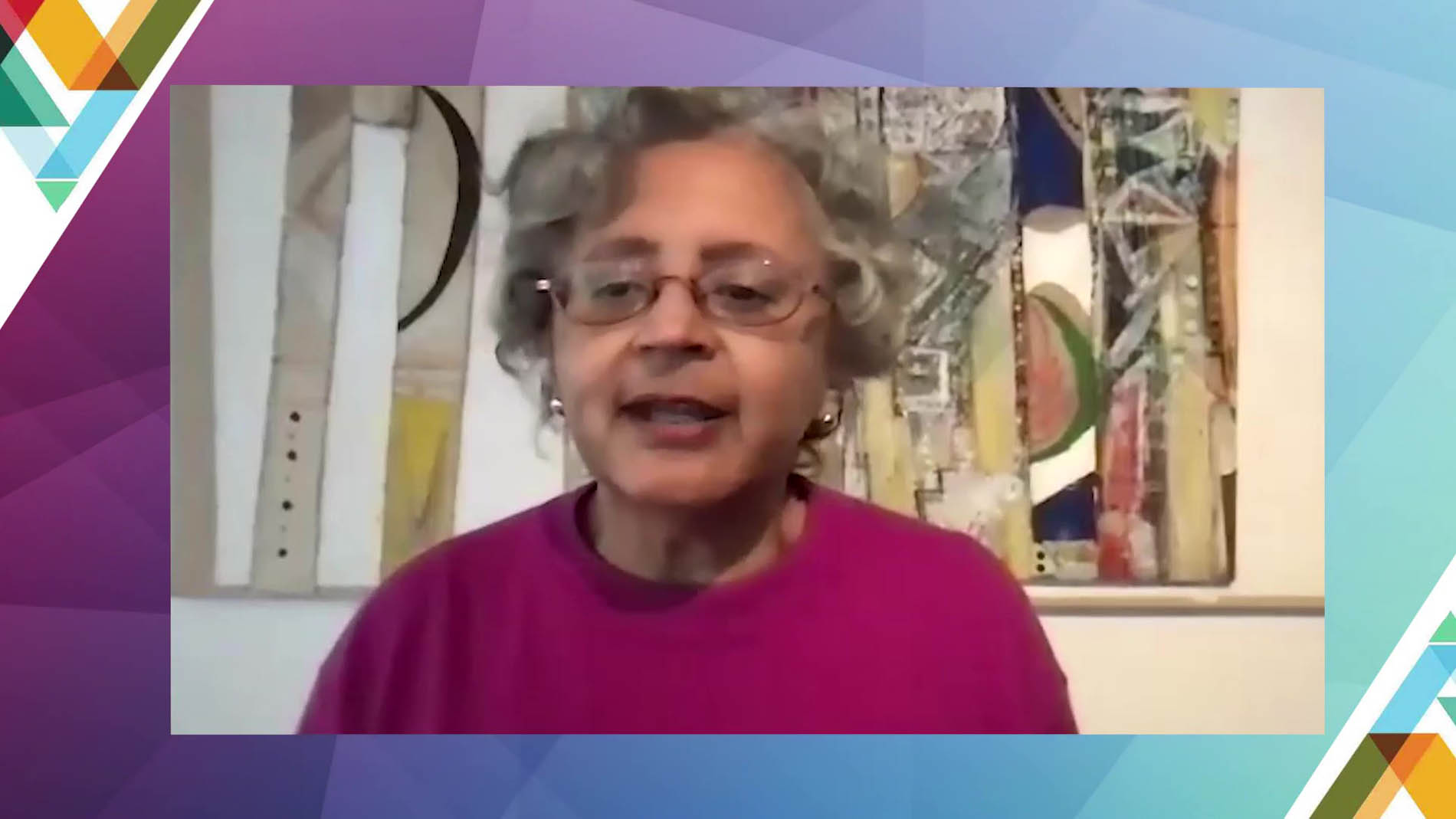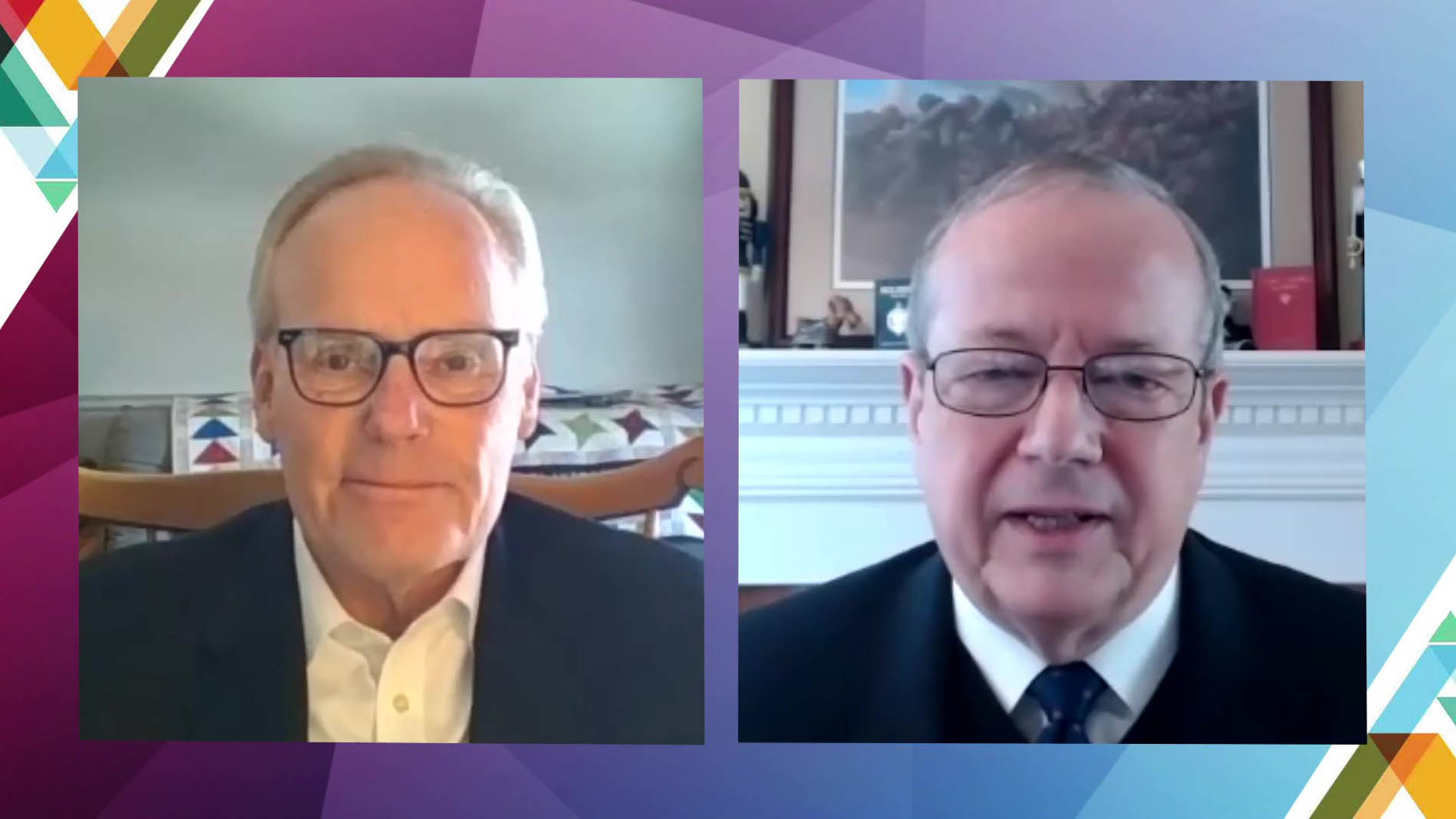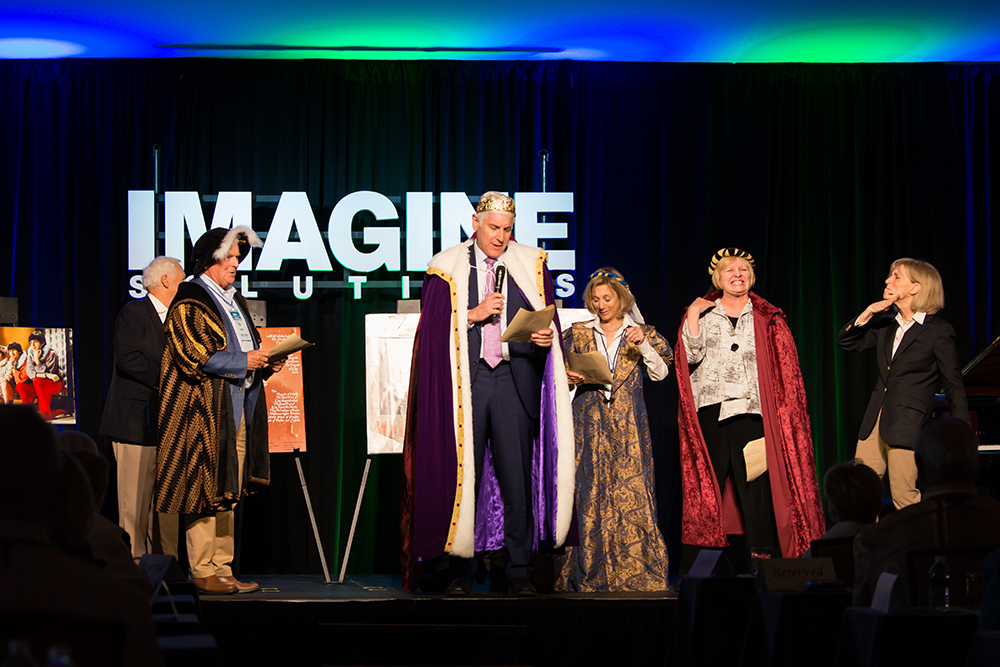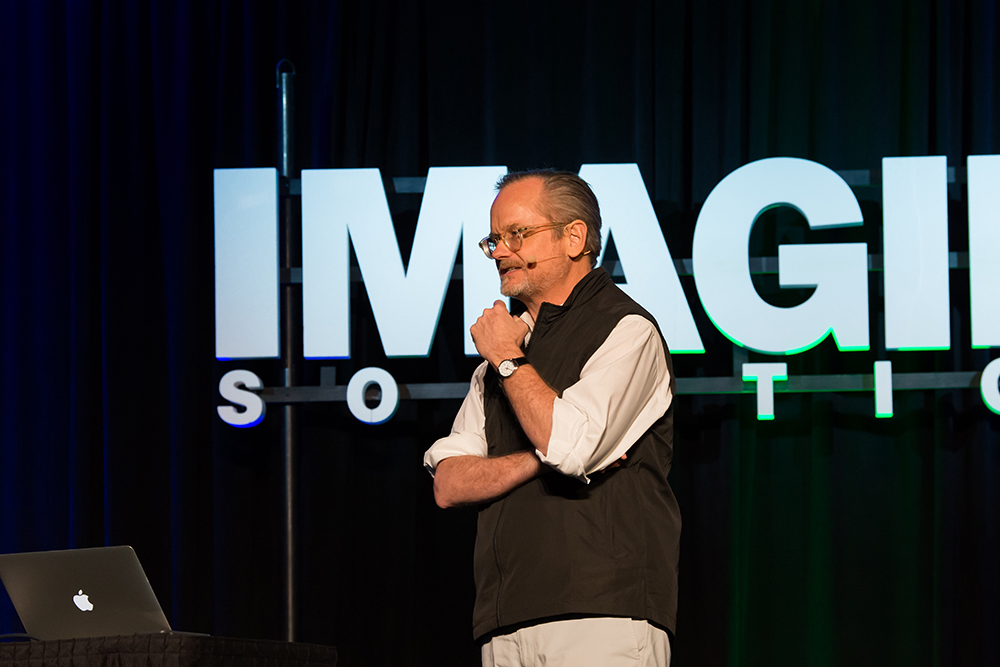Lessons of Lincoln
A foremost expert on Abraham Lincoln, Louis Masur speaks passionately about the humanity of one of our most revered presidents. Noting the significant obstacles Lincoln faced during his life, he nevertheless possessed singular self-awareness, wisdom, and empathy that guided his policies through an impossibly volatile era. Lincoln was an avid learner, always seeking out information and knowledge. He possesed an uncanny perception of when to act, and when to demonstrate patience and humility, and is known to have publicly changed his mind about critical issues, including emancipation. Masur concludes that Lincoln’s leadership was evolutionary, not revolutionary – a lesson for us all.
00.00
thank you thank you thank you well I think it last we could finally talk about a president that most of us can agree on or at least I hope so I love Abraham Lincoln I literally love him and I have spent my life my professional life learning from him and reading him and loving him and I want you to love him as well I want you to realize that you too can learn from him and in order to do that we have to begin by humanizing him because to talk about Lincoln is to talk about someone who's been so cast into marble and limestone and bronze that we almost lose that fact of his humanity so to recover his humanity is to begin the process of understanding perhaps just why it is that he's considered so great and what it is that that we can that we can learn from him so what I do is I just want to tell you some stories in the next 15
01.01
minutes or so about Abraham Lincoln you're a smart audience so I don't need to draw the line between his life and leadership although I think in many cases you'll see clearly what those connections what those connections are to begin it's important to frame his personality it's significant to know the obstacles that he overcame one of them was melancholy oh we know this he suffered from the blues they called it hypose in the 19th century short for hypochondria he had these periods of devastating depression one of his friends once said that Lincoln is so depressed we had to keep sharp objects away for him for fear that he would hurt himself compounding that was his appearance now I have kept a file of people's reactions every time they saw Abraham Lincoln and what's astonishing is they all thought he was one of the ugliest people they've ever met he was
02.01
6-3 gangly awkward huge elephant behind the ears a big Adam's apple every always struck at difference I'll give you one example the poet Walt Whitman volunteered in the hospitals around Washington DC during the Civil War he writes on a letter to his mother in which he says I see the president nearly every day he is like a Hoosier Michelangelo so awful ugly he's nearly beautiful well when you grow up with that sense of difference that sense of being an outsider you need to find mechanisms by which to cope by which to improve your your life and and one of the keys to understanding Lincoln is education education was his path of upward mobility I mean what were the chances that this kid had born on the
03.00
frontier in in a dirt floor cabin his father illiterate when he ran for president in 1860 he was asked to fill out a survey and the questionnaire was very simple and here's how he filled it out born February 12th 1980 no nine Hardin County Kentucky education defective he devoted his life to remedying that he caught a break his mother died and his stepmother shows up with books and the world of books the world of reading the world of education is what got him outside of himself and which began him on this path of upward mobility the way it has many great Americans the way it has all of you I mean part of why we're here today is this notion of lifelong learning of continuing to learn of continuing to to educate it was unlikely that he was
04.00
going to become president he posed for this image that's on the board now when he came to New York for a big lecture he knew it was a lecture that was maybe going to determine whether or not he could achieve the presidency and you could see how statuesque II is his left hand on props but the Bible may be the Constitution that right hand showing the native strength that he had Carl Sandburg once said of him he was equal arts velvet and iron and this image captures that sense of a man who perhaps is in the position to lead the nation through this incredibly delicate time of controversy he statuesque he's staring us in the face he's showing some determination well he becomes president of course one of the things he does as he grows his beard between his election and his inauguration I like to think of it as his war beard he's getting ready for the battle that's that's coming and
05.01
here's something else about Lincoln that that really strikes me so as president of course he's also commander-in-chief what was his military experience he was a volunteer militia captain in Blackhawks war back in 1830 31 he said his entire military experience consisted of being attacked by a swarm of bloody mosquitoes and yet typical Lincoln he read he studied he prepared we know this we have the slips that the White House sent to the Library of Congress for the books he wanted to read he orders Henry hallux principles of military science and art and he involves himself as commander-in-chief but here's a clearer example of what I think is part of his profundity as a leader I want to give you two examples of what he did as commander-in-chief I think both of them are striking in the summer of 1863 he
06.03
had a discussion with General Grant about how best to attack Vicksburg and he and grant disagreed and the two of them went back and forth on this discussion and grant went ahead and did what he wanted to do I carry around random Lincoln letters with me at all times after the successful campaign against Vicksburg here's what Lincoln wrote to grant I now wish to make the personal acknowledgement that you were right and I was wrong can you imagine that imagine that as a lesson in leadership for those of you who are in that position how often leaders want to appear to be beyond criticism how often they will not admit that they made a mistake but here he is telling his general you were right I was wrong I'll give you one other example there are lots of examples this one is particularly striking the
07.04
Battle of Gettysburg is completed July 3rd 1863 momentous victory for the Union the high-water mark of the Confederacy but in the immediate aftermath of the battle Robert Ely was trapped against the rising waters of the Potomac on his retreat and had Meade the general summoned the energy to pursue Lee the war probably would have ended right then and there Lincoln writes a letter to Meade congratulating him on the victory but then he goes on to say my dear general I do not believe you appreciate the magnitude of the misfortune involved in Lee's escape he was within your grasp to have closed upon him in connection with the other successes the war would have ended as it is it will now be prolonged indefinitely he goes on and on and on as
08.01
long paragraph and he stops and he concludes your golden opportunity is gone I am distressed immeasurably because of it he never sent the letter he wrote it he got his feelings out and he filed it away it's a good thing they didn't have email back then because we hit send that would have been a real problem again it's an example I think of extraordinary leadership there are times when you are disappointed even disgusted with what someone has done but you know that to chastise them is somehow to create an impediment that will make it harder for them to succeed at the next level in with this example after example after example of this about Lincoln as a leader as the commander-in-chief using his skills to keep a Union Army intact that at least for the first two years of the war was routinely getting destroyed there's something else about Lincoln
09.03
that I think all of us must admire and it's this he changed his mind over time it's extraordinary and we can watch him do that at this moment with so much partisanship so many people fixed into their positions the idea that you're going to change your opinion about things based on evidence based on changing circumstances based on talking to people that was Lincoln and he didn't just change his mind about trivial matters he changed his mind about the single most important matters facing the Union here he is meeting with those generals over whom he was commander in chief and here he is struggling to figure out what to do about the slaves in 1854 Lincoln gave a speech at Peoria
10.00
in which he said I do not believe blacks and whites can live together peaceably in this country and he advocated for what was called colonization he wanted them all to voluntarily migrate to other places Liberia is founded as a colony for free blacks he was looking to South America he was looking to the Dominican Republic and he went even further he said in that speech I do not believe in the political and social equality of blacks that's 1854 here he is in the summer of 1862 trying to decide on issuing an Emancipation Proclamation that's going to free the enslaved persons and I love this image I used this image on the cover of my book which studies this period of Lincoln's life it's called Lincoln's hundred days the period between when he announces that he's going to free the slaves he does that on September 22nd 1862 and he
11.02
actually frees them and what I like about this is we have these images of Lincoln that are called hagiography right sainthood pictures but here he is in his night shirt his little slipper socks I look at this sometimes like a Where's Waldo picture almost and look at all the details he has the Bible and the Constitution on his lap he's got all these different sources on his desk Calhoun petitions his coat is thrown over his trunk his mall is on a map of a Confederacy it's the struggle to figure out what to do and how to do it not only does he then having made the decision refused to back down under tremendous pressure to do so we're talking about the abolition of slavery or at least the emancipation of those slaves in the Confederacy he not only issues the Emancipation Proclamation on January 1st it takes
12.00
another step as well that shows how Lincoln changed his mind the Emancipation Proclamation authorizes the enlistment of black soldiers well Lincoln had been completely opposed to that he said what are you crazy we're gonna put guns in the hands of slaves and free blacks and send them back south to fight he said if I were to do that Kentucky one of the border states would immediately leave and join the Confederacy and as he once was quoted as saying I'd love to have God on my side I must have Kentucky he changes his mind he authorizes the enlistment of those black soldiers and the fighting of those black soldiers becomes critical not only to winning the war but to creating claims to citizenship after the war Lincoln was Evolutionary not revolutionary and I think there's a
13.02
lesson there take your time be gradual consider everything but when you're ready to act act and act decisively he of course become celebrated for the Emancipation Proclamation and for the illicit of black soldiers and for saving the Union abolishing slavery and of course also protecting democracy because democracy was what is at the heart of everything that drove Lincoln that's the meaning of the Gettysburg Address government of the people by the people for the people shall not perish from this earth and that's what galled him it gold him that in response to an election 11 states tried to leave the Union said there's a lot of ways to respond to an election that you don't approve of you wait for years you vote again you could hold a constitutional convention you could even have a revolution I overthrow
14.02
the government what you can't do is leave and he insisted on holding the election of 1864 because that to him is what this was about it was about finding the way to defend and protect democracy look at that image compare that image to the one a few slides earlier that just showed him so much younger we know how the office ages its occupant this is taken in February of 1865 it's one of the last photos taken of him the war is winding down in April on April 11th 1865 Lincoln is prepared to give a final speech what's he gonna say everyone wants to know it's momentous this war that devastated families on both sides there isn't a family that didn't suffer loss he carried all that on his
15.01
shoulders as president and commander-in-chief he also suffered the personal office and all of his son Willie in the White House in February of 1862 in that speech he stands before a crowd spread out in front of the White Horse lawn White House lawn and he talks about reconstruction he talks about stitching back together this nation and he publicly endorses giving the right to vote to black men this is a man who ten years earlier said I do not believe in the political and social equality of blacks he understood that only by giving the right to vote to black man could those Friedman's some four million of them now with the 13th amendment on its way to being ratified could they protect their interests that's what democracy is they had to be able to elect their own representatives
16.03
standing in the crowd in front of the Executive Mansion when he delivers that speech as John Wilkes Booth and John Wilkes Booth turns to lewis powell and he says that means n-word citizenship that's the last speech you'll ever give three days later on Good Friday April 14th he acts it's a sad sad moment of course we know that that afternoon he and Mary Todd took a carriage ride and this man who suffered so from melancholy and from sadness and from just problems of making it through the world he takes a carriage ride with Mary Todd and he says to her that afternoon today the war is over and I am happy they thought about the plans that they would make for after the
17.01
end of his second term but of course it was not to be I began by telling you that I love Abraham Lincoln I want to talk about someone else who loved Lincoln w/e beat the boys WTB the boys was one of the founders of the n-double a-c-p he was a historian the editor of crisis magazine the first African American to get a PhD from Harvard University the boys at the time of the dedication of the Lincoln Memorial is thinking really hard about this guy Lincoln thinking really hard about that image that I just had up on the on the screen if we could go back to that that final image and he was writing about it and here's what he said he said I love him not because he was perfect but because he wasn't and yet he
18.03
triumphs the world is full of illegitimate children the world is full of people who are educated in the gutter the world is full of people born hating and despising their fellows to these I love to say do you see this man he was one of you but he became Abraham Lincoln thank you all [Applause] [Music]

